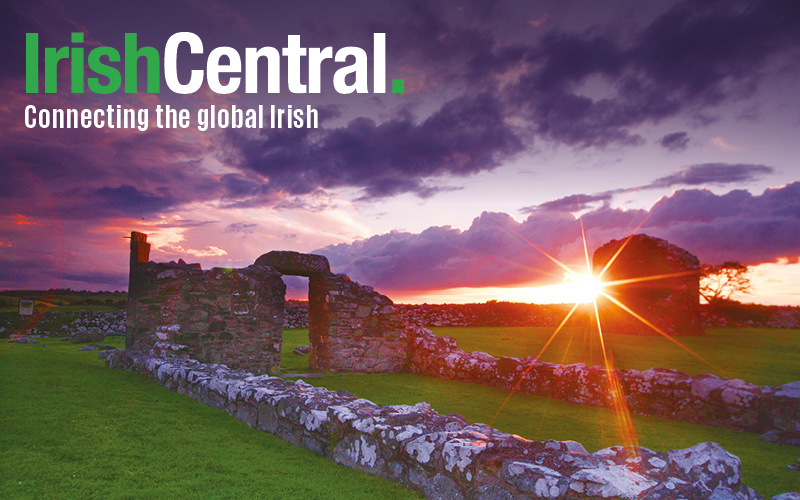DAVID McWilliams is Ireland's most talked about young economist, often credited with coining the phrase Celtic Tiger. His bestselling book The Pope's Children not only explained how our economic boom got going but how it had changed people's lives here, not always for the better. Throughout that book he cast a very jaundiced eye over what the boom had done to Irish society. Plus, unusually for a book by an economist, it was a great read.
In it McWilliams invented names for all the different stereotypes that the new pressurized and pretentious Ireland was producing. The Decklanders, for example, were the people who as soon as they got their new overpriced little house in commuter land put a deck out the back.
Breakfast Roll Man was probably his best creation - it's now entered the language here - depicting the stressed out, time poor Celtic Tiger cub eating on the run in the service station shop every morning on the way to overcharging another client. And there were many others, all uncomfortably accurate.
Everyone all laughed, but it was uneasy laughter tinged with recognition. McWilliams was right. What a greedy, pretentious, harassed and dissatisfied people we had become.
As an economics graduate and amateur economist myself, I probably inflict more columns about the Irish economy on the readers of the Irish Voice than I should. But I make no apology for doing so this week because a new book from McWilliams, called The Generation Game, has just come out here and it includes an extraordinary idea - he wants to bring the Irish diaspora home. Or at least as many of them as we can attract back.
McWilliams thinks we should try to tempt back all the Irish who left here since the gloom of the early 1980s and went on to develop entrepreneurial know-how and financial and technological skills over the years since then. He wants the skills and the drive and the experience that these people picked up since then back here in the coming years to rescue us from what he sees as the inevitable deep slump facing us in the immediate future.
But it's not just the American Irish he is after. He also wants us to widen the net to include Irish Americans, as well.
He says that instead of the present rule which says that Irish Americans are automatically entitled to citizenship if both their grandparents were born in Ireland should be relaxed to include those whose Irish roots are further back, great grandparents or even great great grandparents.
"It is time to see the island of Ireland in the 21st century as the cradle of a global nation," he says. And he makes the comparison with Israel and how Jews in any part of the world have the right to citizenship there.
McWilliams wants to do the same for the Irish diaspora. He calls it a "Right of Return" policy.
Why does he want to do it? We all know that the phenomenal boom here is now coming to an end. Unemployment is already on the way up.
One of the consequences of the boom is that costs in the Irish economy have soared. We have seen a long list of manufacturing plants (including many American multi-nationals) pulling out of Ireland and relocating in cheaper countries either in Eastern Europe or the east. Even so-called high tech jobs are not safe these days unless we raise our game far higher than at present.
There is a growing worry here - verging on unspoken panic - about how we can combat this.
McWilliams says, "The key to (Ireland's) economic success in the future is to invest in people and brainpower rather than property (the Irish building boom). In the years ahead the countries with the best networks, contacts and brains will win.
"This is called 'soft power' and the key to soft power is people. In the (Irish) diaspora we not only have the people, we have a ready made global network of talent. It is before our eyes and yet we don't see it."
McWilliams is thinking of the hugely successful people of Irish descent are not just in Irish America but in other places like the U.K. and Australia as well. If we could get this "global Irish tribe" to bring their contacts, financial muscle and cutting edge experience back here, "globalization could be the golden era of the Irish."
It's an intriguing idea and it's one that makes a lot of sense. A lot of the detail would have to be worked out (like, for example, would all of your great grandparents have to be Irish to allow you to qualify?) But we certainly need some new thinking here if our present prosperity is to be maintained in the years ahead instead of withering back to where we started from.
There is no doubt that giving citizenship to the diaspora would greatly increase their interest and involvement in Ireland, and equally there is no doubt that the Irish diaspora could be a vast untapped well of resources for us. It could kick start us and drive us on to a different level in the future.
And talking about levels, there is also the view that it is not just the high fliers in the diaspora that would provide a boost back here, but also a lot of people in what we can call ordinary jobs, the bricklayers, plumbers, carpenters, truck drivers, bar staff, etc.
In the last few years we have had tens of thousands of immigrants coming in here to do these jobs, and the costs associated with this influx are significant and ongoing (English lessons for adults and specialist teachers for schools with high levels of immigrant children, for example).
There are also growing concerns here about the long-term effects of the influx on Irish culture and Irish identity, and in spite of the "multi-culture is good for you" line pushed endlessly by the authorities here, the strain and unease are very visible if you don't deliberately close your eyes.
The fact is that if what McWilliams calls his right of return policy for the Irish diaspora was implemented immigration here from Eastern Europe, Africa and elsewhere would be much lower and the result would be a much more coherent Irish society with a more manageable level of new cultures arriving.
To sum up McWilliams' new book in a sentence, he believes we should leave the euro and the European Union, devalue the (recreated) Irish punt and open our doors to the brains and energy of the Irish diaspora, which would boost our prosperity in a globalized world while alleviating the cultural and social strains of non-Irish immigration. It would give us the chance to become a real "knowledge economy," now that manufacturing is only for the Chinese.
Is he right? While you're all mentally writing letters to the Irish Voice about whether opening the door to the diaspora is just wishful thinking and romantic nonsense, let me tell you about some of the hilarious (and painfully perceptive) new labels that McWilliams has invented in his new book for the Irish as the boom starts to slow down.
After 10 years of the boom, he says, Irish society has been turned on its head by the Generation Game (hence the title of the book). The clear winners have been the middle-aged Jagger Generation who have been enriched by the property boom, creating a new class of Accidental Millionaires.
Meanwhile the younger generation - the cash-strapped Jugglers, who have to juggle their bills every month - can only afford a dogbox in commuterland as a home.
The category I like best is what McWilliams calls the Bono Boomers, Ireland's first "permalescents," a permanently adolescent generation, too young to be old, too old to be hip, but with enough Celtic Tiger money to buy corporate packages at all the best rock gigs!
Bring home the diaspora and we can all rock on.




Comments